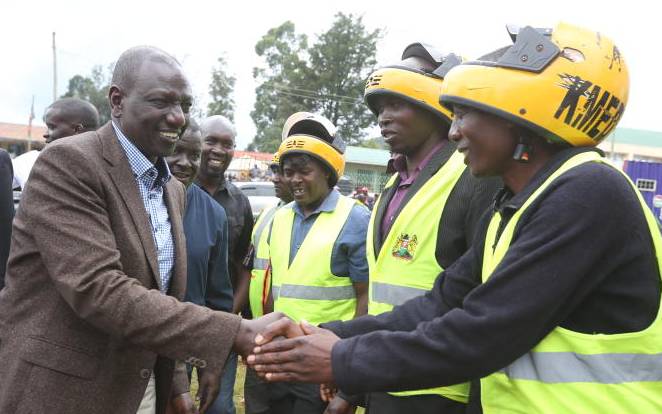×
The Standard e-Paper
Home To Bold Columnists

DP Ruto greets Boda Boda leaders from Nyamira County at Ekerenyo on October 25, 2019. [Sammy Omingo, Standard]
Deputy President William Ruto and his allies have softened their hard-line stance on the Building Bridges Initiative (BBI).